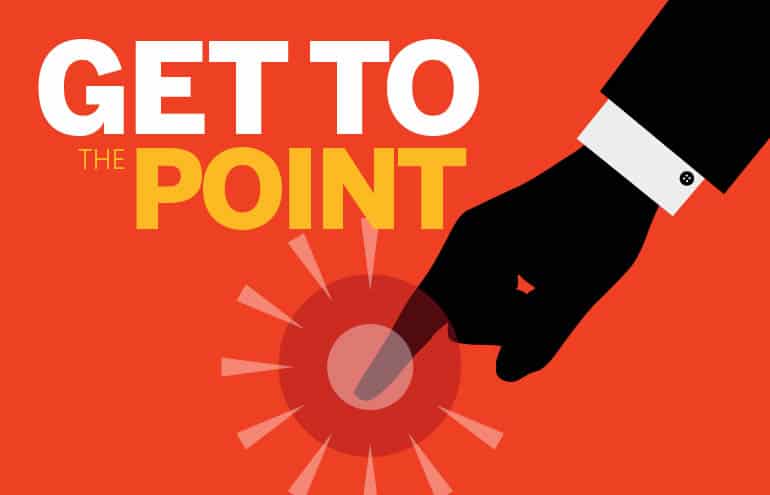Euphemisms substitute good language for what some might consider bad. As an advocate, avoiding harsh language may benefit your case.

Table of contents
Euphemisms are words or phrases used in place of other words that might offend the recipient of the message. The prefix eu- means “good.” Euphemisms substitute good language for what some might consider bad. Sometimes the communicator is sidestepping the truth, but, as an advocate, avoiding harsh language may benefit your case.
I was at a funeral recently where the sister of the deceased — we’ll call the decedent Rhinestone — gave a eulogy. (There’s that eu- prefix again.) A eulogy is a litany of good things about the dearly departed. The sister said that Rhinestone maintained “an air of innocence” throughout her life. That was nice. In fact, Rhinestone was a total airhead. Using a euphemism can sometimes be the best language choice.
How Euphemisms Improve Your Briefs
Some lawyers, particularly in their writing, use phrases guaranteed to antagonize opposing counsel:
- Louis Landlord failed to take any steps to improve the safety of the stairway.
- Polly Plaintiff lied about her use of the data.
“Fail” and “lie” are two words that frequently appear in lawyer’s arguments and are easy to fix.
Go ahead and use passionate language in your first draft. Get all your emotion on the screen before you go back to revise. Maybe you think you don’t care how the other side will react, but you do care about the judge’s reaction. You want your arguments to appear well-reasoned, not the product of unconsidered emotion.
Substitute “did not” for “failed” and “incorrect” or “inaccurate” for “lied”:
- Louis Landlord did not take any steps to improve the safety of the stairway.
- Polly Plaintiff provided inaccurate information about her use of the data.
Don’t worry; the judge sees what you’re saying.
Lately, the media has hit upon “untruth” as a euphemism for “lie.” That’s a little closer to “lie” on the emotional vs. fully reasoned scale and may not come off as lawyerly as “provide incorrect information.”
As you revise, look for other instances where you might tone down your language without sacrificing your point.
The Waffle
Sometimes it is neither the time nor place to argue. The British are the masters at coming up with rejoinders that could signify agreement or skepticism. When a Brit hears an outlandish remark, the response might be a mild “quite” or elongated “rather.” For example, when someone says the malfunctioning product “wasn’t supposed to do that,” a British-ism might be the perfect response. If this seems natural to you, go for it.
Americans are more likely to remark with a monotonic, noncommittal “really,” or even that most ambiguous response, “uh-huh.”
You don’t have to take the bait. Instead of an incredulous “No s***,” use a euphemism.
Damning with Faint Praise
Another situation where you might want to use — or challenge — a euphemism is in the description of someone’s skills. Calling the employee “well-meaning” might create sympathy, but doesn’t mean the person was not negligent. Similarly, “capable” or “efficient” are not descriptions that excuse culpable behavior. Hearing these euphemisms might prompt you — or your opponent — to ask more piercing deposition questions.
Clients get emotional about their cases. In their zealous advocacy, many lawyers feel as emotional as their clients. But your communications on behalf of your client are most persuasive when they use less antagonistic language. That’s what euphemisms are for.
518 Illustration ©iStockPhoto.com
Subscribe to Attorney at Work
Get really good ideas every day: Subscribe to the Daily Dispatch and Weekly Wrap (it’s free). Follow us on Twitter @attnyatwork.
















